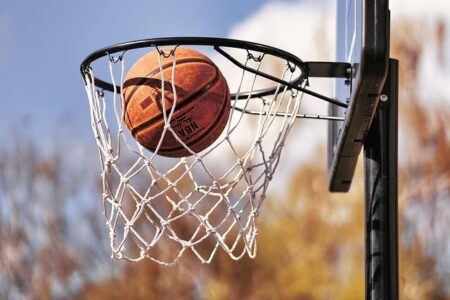As colleges across the country continue to diversify their academic offerings, the question of whether “Sports” should be recognized as a legitimate college major has sparked renewed debate. Proponents argue that the growing sports industry warrants specialized education in areas such as management, marketing, and athletic training, while critics caution against diluting academic rigor. This article explores the evolving landscape of sports-related degrees, examining their value, challenges, and the implications for students and higher education institutions alike.
Reevaluating the Academic Value of Sports as a Major
In recent years, the legitimacy of sports as a dedicated field of academic study has sparked considerable debate among educators and policymakers. Critics argue that “Sports” as a major often lacks the rigorous intellectual framework found in traditional disciplines, raising questions about its long-term value and applicability beyond athletic careers. However, proponents highlight the multidimensional nature of modern sports programs, which incorporate elements of physiology, psychology, management, and technology – disciplines intrinsic to understanding and advancing athletic performance and industry innovations.
Key arguments in favor emphasize the diverse skill set gained through sports studies, such as:
- Leadership and teamwork dynamics essential for both athletic and corporate environments,
- Sports analytics and data interpretation driving modern game strategies and business decisions,
- Health sciences contributions, including injury prevention and rehabilitation research,
- Sports marketing and event management, critical to a rapidly expanding global industry.
| Aspect | Perceived Academic Rigor | Career Flexibility |
|---|---|---|
| Traditional Majors (e.g., Economics) | High | High |
| Sports Science | Moderate to High | Moderate |
| General Sports Management | Moderate | High (Sports Industry Focus) |
The Career Pathways and Economic Realities for Sports Graduates
Graduating with a degree in sports studies opens doors to a variety of career avenues, ranging from athletic training and sports management to journalism and coaching. However, the reality of these opportunities often depends on the graduate’s ability to integrate practical experience with academic knowledge. Many find roles in community sports programs, fitness coaching, and health promotion, while others might climb the ranks in collegiate or professional sports organizations. Despite the appealing nature of sports-related careers, the competition remains steep, and success frequently hinges on networking, internships, and ongoing professional development.
Economic prospects for sports graduates vary significantly, and it is crucial for students to understand the potential financial landscape. Entry-level salaries tend to be modest, especially for those in training or administrative positions, but growth is possible with experience and specialization. Below is a breakdown of average starting salaries in key fields allied to sports degrees:
| Career Path | Average Starting Salary | Growth Potential |
|---|---|---|
| Sports Coach | $35,000 | Medium |
| Athletic Trainer | $40,000 | High |
| Sports Marketing | $38,000 | High |
| Fitness Instructor | $30,000 | Medium |
Key factors for success include:
- Gaining certifications and licenses relevant to the field
- Networking strategically within the sports industry
- Leveraging internships and hands-on roles to build experience
- Staying adaptable amidst evolving sports and wellness trends
Integrating Sports Science and Management for a Holistic Curriculum
Blending principles of sports science with management strategies is reshaping the academic landscape for aspiring sports professionals. This paradigm emphasizes not only the physical and physiological aspects of athletic performance but also the strategic oversight necessary to run sports organizations effectively. Today’s curriculum demands that students master an array of interdisciplinary skills – from biomechanics and nutrition to marketing and event management – preparing them for the multifaceted nature of the sports industry.
Key components of this integrated approach include:
- Applied Physiology: Understanding the human body’s response to training and recovery.
- Sports Analytics: Using data to enhance performance and business decisions.
- Leadership and Ethics: Navigating team dynamics and fostering fair play.
- Event and Facility Management: Organizing competitions and maintaining sports venues.
- Sports Marketing and Sponsorship: Engaging fans and attracting financial support.
Institutions adopting this model find that graduates emerge with a comprehensive toolkit, enabling them to adapt swiftly in an evolving industry. The fusion of science and management not only enriches the learning experience but also fuels innovation in sports performance and organizational success.
| Skill Area | Typical Course | Career Path | |||||||||
|---|---|---|---|---|---|---|---|---|---|---|---|
| Kinesiology & Physiology | Exercise Science | Athletic Trainer | |||||||||
| Sports Data Analysis | Recommendations for Colleges Considering Sports as a Degree Option
Colleges intending to introduce sports as an academic major should first ensure a multidisciplinary curriculum that bridges theory and application. Programs must integrate areas like kinesiology, sports management, nutrition, and psychology to offer a holistic education. Collaborations with local sports organizations and internship opportunities can provide practical experience, preparing students for diverse careers ranging from athletic training to sports marketing. Additionally, institutions must prioritize accreditation and faculty expertise to maintain academic rigor and industry relevance. Transparent evaluation metrics, including graduate placement rates and research contributions, can help legitimize the discipline. Below is a suggested framework of core components for these programs:
Closing RemarksAs the debate over whether “Sports” should qualify as a standalone college major continues, institutions and policymakers face the challenge of balancing academic rigor with the evolving demands of the sports industry. While proponents argue that specialized programs can better prepare students for diverse careers in athletics, management, and health sciences, critics caution against diluting traditional academic standards. Ultimately, the decision will hinge on how colleges define educational value in an era where sports play an increasingly prominent cultural and economic role.
Add A Comment
|





